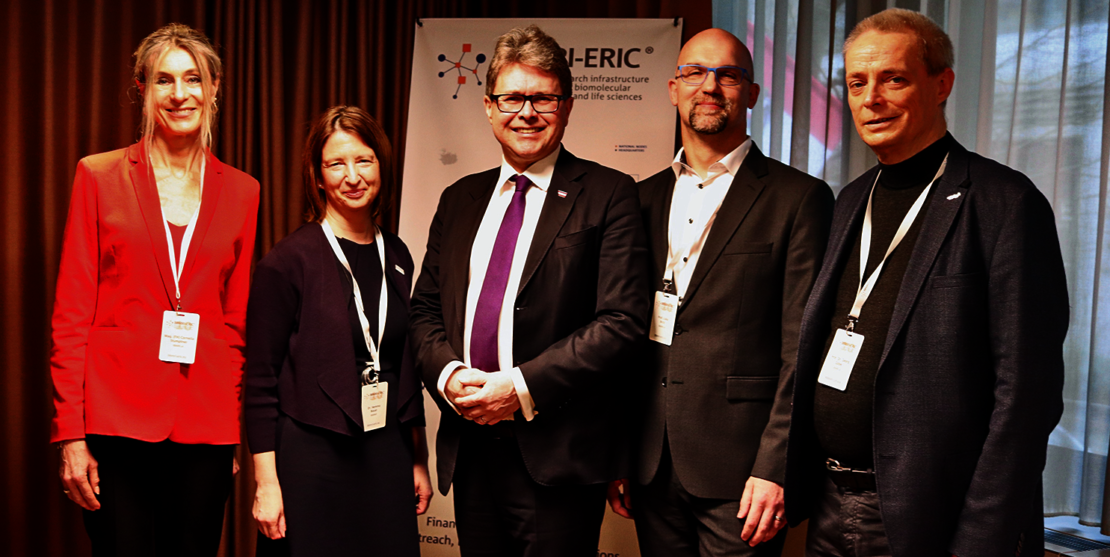BBMRI.at received 5-year grant to continue its work of the past 10 years and further advance the Austrian biobanking infrastructure and support research
BBMRI.at successfully completed its tenth year of operation by the end of 2023. To further advance the Austrian biobanking infrastructure and support researchers, the Austrian Ministry of Education, Science and Research BMBWF is now funding the work of the Austrian node with €4.1 million.
First 10 years of BBMRI.at
Since its founding in 2013, BBMRI.at has developed a highly collaborative biobanking community by engaging with all Medical Universities in Austria. BBMRI.at took great effort in enlarging the visibility and usage of leading Austrian biobank cohorts. “BBMRI.at has become a visible, essential and driving part of the European research infrastructure environment” – says the statement in the BBMRI.at evaluation report written by the international evaluation board and the funder, the Austrian Federal Ministry of Education, Science and Research (BMBWF).
BBMRI.at addressed the importance of quality management and data quality, i.e. by contributing to and/or leading the development of ISO and CEN quality standards for sample pre-analytics and by implementing these standards in Austrian biobanks. BBMRI.at conducted periodic quality management cross-audits of its biobanks. A ‘Central Access/Contact Point” for requests (for e.g. samples/data and participation in call proposals) was established and common access procedures to BBMRI.at biobanks were agreed on. In the field of trusted and secure environment for patient data and data/metadata quality management for biobanks, BBMRI.at is recognized as a frontrunner.
5-year funding received
BMBWF, the Austrian Federal Ministry for Education, Science and Research, is funding the work of BBMRI.at for another five years with €4.1 million. This amount will be available for BBMRI.at’s six consortium partners:
- Medical University of Graz (which has been in charge of project coordination for the last ten years, with BBMRI.at Coordinator Luka Brcic and BBMRI.at Executive Manager Cornelia Stumptner)
- Medical University of Innsbruck (with National Node Director Georg Göbel)
- Biobank Graz at Med Uni Graz (with 21 million samples one of the largest biobanks in Europe)
- Medical University of Vienna with MedUni Wien Biobank
- University of Veterinary Medicine with VetBiobank
- Medical Faculty of the Johannes Kepler University Linz with Biobank Linz (under construction)
- University of Vienna (bringing in legal expertise)
Luka Brcic and Georg Göbel will be the successors to the former BBMRI.at coordinator and node director Kurt Zatloukal (Medical University of Graz).
Third BBMRI.at project period (2023-2028)
In its third project period (2023-2028), BBMRI.at will build on achievements of previous years. BBMRI.at will continue to put emphasis on sample and data quality and harmonization, facilitating access to biobank samples/data, networking with industry and science, and fostering research collaborations using biobanked samples/data and expertise. Also engaging different stakeholders, such as researchers, clinicians, and citizens, will constitute important activities of BBMRI.at and its partners. In addition, new topics with current relevance for biobanking are in focus. These include the One Health approach and comparative medicine (human – animal), data integration in BBMRI-ERIC, data-related legal/regulatory issues, and environmental sustainability in biobanking.
For details see Goals & Key Activities.
In the next five years, BBMRI.at will continue its efforts to prepare Austrian biobanks for upcoming needs like data access and sustainable operation and help them to take leading roles in the international biobanking community. BBMRI.at thereby contributes to the Austrian research infrastructure and supports European goals like the EU cancer mission or data and climate actions. In addition, BBMRI.at will carry on to aim for societal engagement and increase the public‘s knowledge and understanding of the impact of biobanking on biomedical research.


